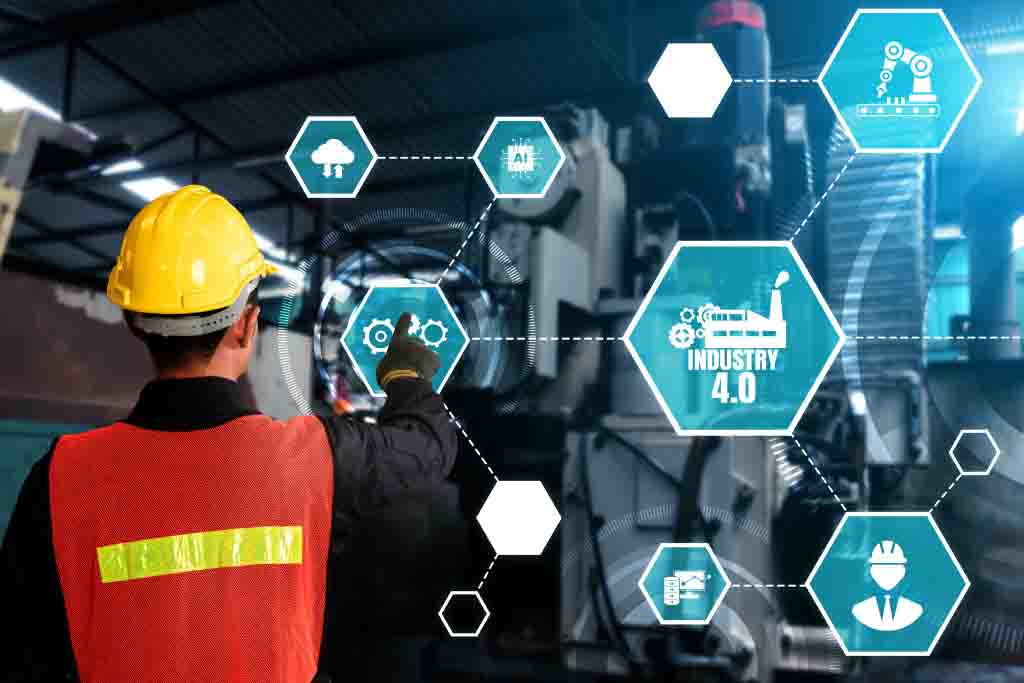By Wasana Nadeeshani Sellahewa
(Commonwealth) _ Has the industrial industry lost an entire generation of competent workers? Manufacturing is a significant economic contributor in Connecticut, providing 161,000 employment, $14.9 billion in salaries, and $123 million in corporate income tax to the state. Although it is too large to fail, the state’s manufacturing training structures have weakened.
High school machining and other manufacturing programs began to dwindle around 1980, as parents and instructors increasingly adopted a “college for all” approach. Schools redirected their resources elsewhere since there were no pupils pursuing those vital skills.
This began to change in 2010, when the state recognized the critical need to invest in industrial skills. To keep up with attrition, the industrial industry in Connecticut alone needs to fill 6,000-8,000 employees per year. 35 percent of the manufacturing workforce in the state is 55 or older. This is also the most skilled part of the workforce, and they are retiring in large numbers.
Colin Cooper, Connecticut’s first Chief Manufacturing Officer, sees the approaching silver wave clearly. “If we don’t meet demand, it will go somewhere else and be difficult to recoup,” he adds. Cooper’s duty is to assist foster a long-term talent pipeline, recruit new manufacturers to the state, and support those that are currently present.
To do this, he needs reach two crucial audiences: young people who will be the future workforce and their parents who will influence their job choices. But there are significant obstacles, not the least of which is the persistent impression of manufacturing as a filthy, low-paying, low-skilled field in other words, as a job rather than a profession.
With the greatest of intentions, parents and instructors have discouraged their children from pursuing professions in sophisticated manufacturing. Given the continuing stigmas that plague our business, it’s reasonable. Nothing could be further from the truth now.
With the advancement of sophisticated technology, robotics, and simplified industrial processes, low-skilled professions in manufacturing have all but vanished. Gone are the filthy factories of the old; nowadays, manufacturing is a high-precision field with high-tech facilities to match.
“There’s still an image that manufacturing is nasty, noisy, and untidy,” Cooper says. Most of our production facilities in the state are clean, well-organized, and chock-full of high-tech equipment.”
High- and medium-skilled personnel are in high demand to manage contemporary industrial facilities. To remain competitive in the global market, manufacturers must fill these roles. However, no one appears to be aware of these high-paying prospects, since 89% of the state’s manufacturers report that finding competent people is their most difficult difficulty.
Manufacturing, like practically every other business, faced the consequences of the countrywide shutdowns caused by the Covid-19 outbreak. Cooper, on the other hand, is upbeat. “It’s not as bad as I anticipated,” he says. “While there is a lot of uncertainty right now, the long-term patterns remain intact.”
Manufacturing is more than simply a job. For most individuals, “a job” refers to employment that feels like drudgery or a dead end. You do it to make ends meet, but as soon as you discover something better, you go. Of course, this is both good and bad news: good because manufacturing will revive, but terrible because Connecticut (and possibly the rest of the country) will suffer as a result. However, manufacturing may now be a legitimate job. Young people might be challenged in this profession since they physically develop, manufacture, and distribute common things and technology of the future. High-tech jobs need high-level talents, which are rewarded correspondingly, and there are numerous prospects for professional and technical advancement. Forget the outmoded stereotypes; modern manufacturing is a sector worth celebrating. It’s a career, not a job. And the sooner young people understand this, the better.







